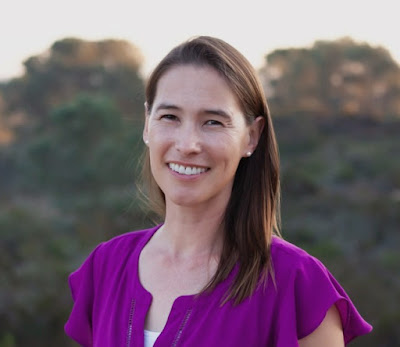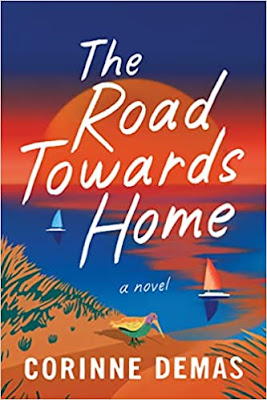Linda Kao
Linda Kao grew up in California and spent most weekends throughout elementary school hauling books home from the library to read on the living room rug. After completing her degree at Stanford University, she taught elementary school for several years before earning a Ph.D. in Education from UCLA. Along the way, she discovered a love for writing fiction, and in 2014, she received the SCBWI Sue Alexander Award. She has published short stories and poems in Highlights for Children, Ladybug, Fun for Kidz, and Boys' Quest.
Stanford University, she taught elementary school for several years before earning a Ph.D. in Education from UCLA. Along the way, she discovered a love for writing fiction, and in 2014, she received the SCBWI Sue Alexander Award. She has published short stories and poems in Highlights for Children, Ladybug, Fun for Kidz, and Boys' Quest.
Kao currently lives in Southern California with her family. A Crooked Mark is her debut novel.
My Q&A with the author:
How much work does your title do to take readers into the story?Visit Linda Kao's website.
I think it does a lot! It’s an immediate hint that this story is going to be dark and suspenseful, and the very first line of the book confirms it: “I don’t know how it feels when the Devil scratches a soul.” The title came to me early on, and it stayed throughout the first draft to the final version. I especially like how it gains meaning as the story progresses and the questions and consequences surrounding the Mark become clear.
What's in a name?
I chose “Matthew Watts” for my main character’s name because I loved the simplicity of it and the fact that it allows him to be “Matthew” to some people but “Matt” to others. This has meaning, because it says something about their relationship. I also like that it’s a fairly common name. Matt’s story may be unique, but in some sense, he’s just a regular teenager, and that brings his story closer to home.
How surprised would your teenage reader self be by your new novel?
Very! Teenage Linda would probably choose a story free of speculative elements and with no possibility of Lucifer lurking in the wings. I wasn’t one for psychological thrillers that ventured into the supernatural; I preferred my mysteries straightforward and firmly grounded in this world. I think this has changed as I’ve gotten older, and when I was writing A Crooked Mark, it didn’t bother me atall. The premise just made sense: If the Devil Marks a soul, you have to burn it. Done.
Do you find it harder to write beginnings or endings? Which do you change more?
Beginnings are much harder for me. Before I started writing A Crooked Mark, I already knew the end of the story, and more importantly, I knew the feeling I wanted readers to have when they finished the last line. I also had a sense of who Matt was and the central problem he would face, as well as what he was like as a person. Figuring out just the right point to bring the reader into his story was tougher, and I ended up making significant changes to the original beginning.
Do you see much of yourself in your characters? Do they have any connection to your personality, or are they a world apart?
I see myself in Matt, in that he’s trying to figure out how to make sense of a world in which there is conflicting information. This is hard as a young adult, but it’s also hard as an older adult, especially these days when so many voices are saying different things. Deciding where the truth lies, where I stand, and then acting on it – even when it’s not easy – is something I’m always working on.
--Marshal Zeringue
















